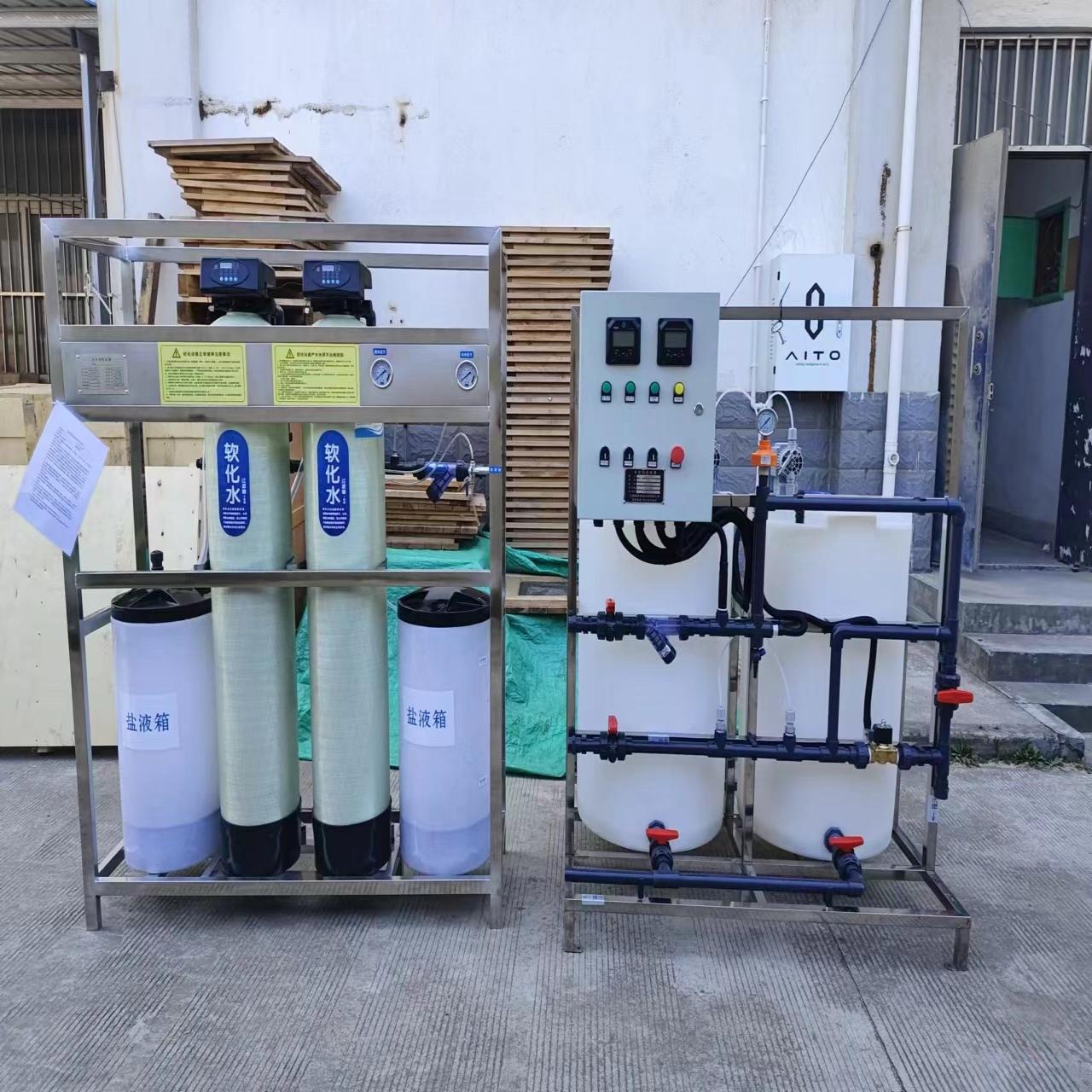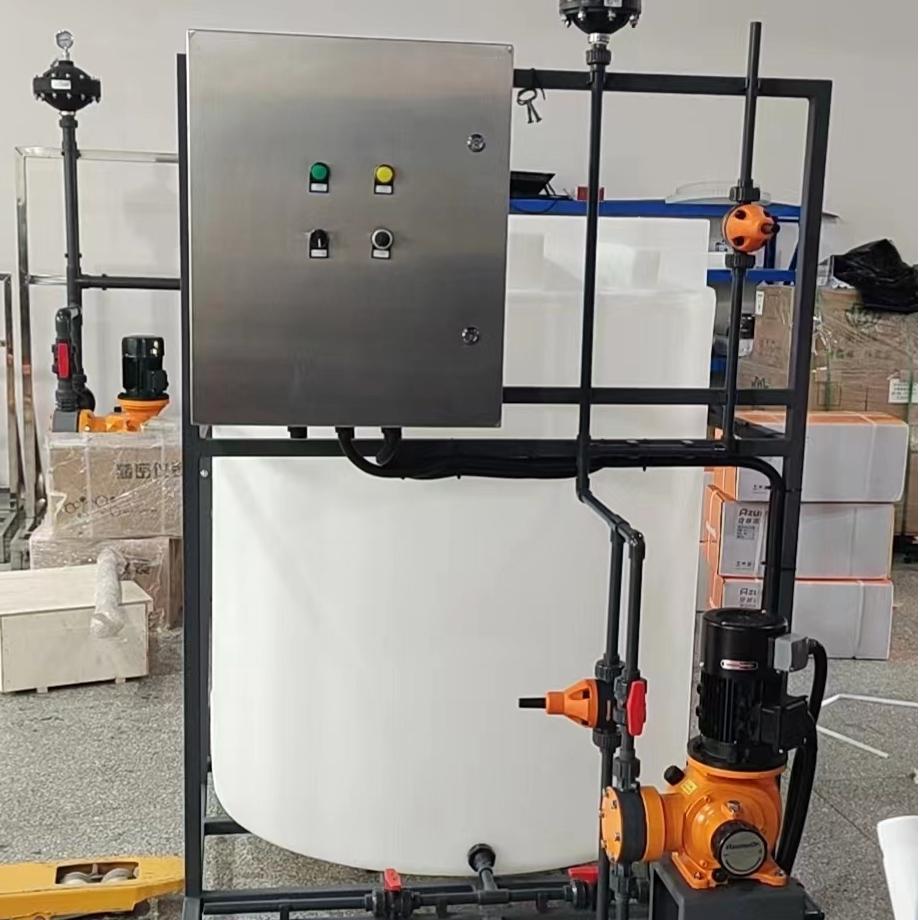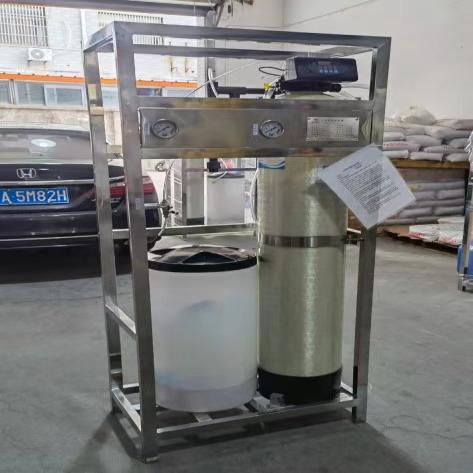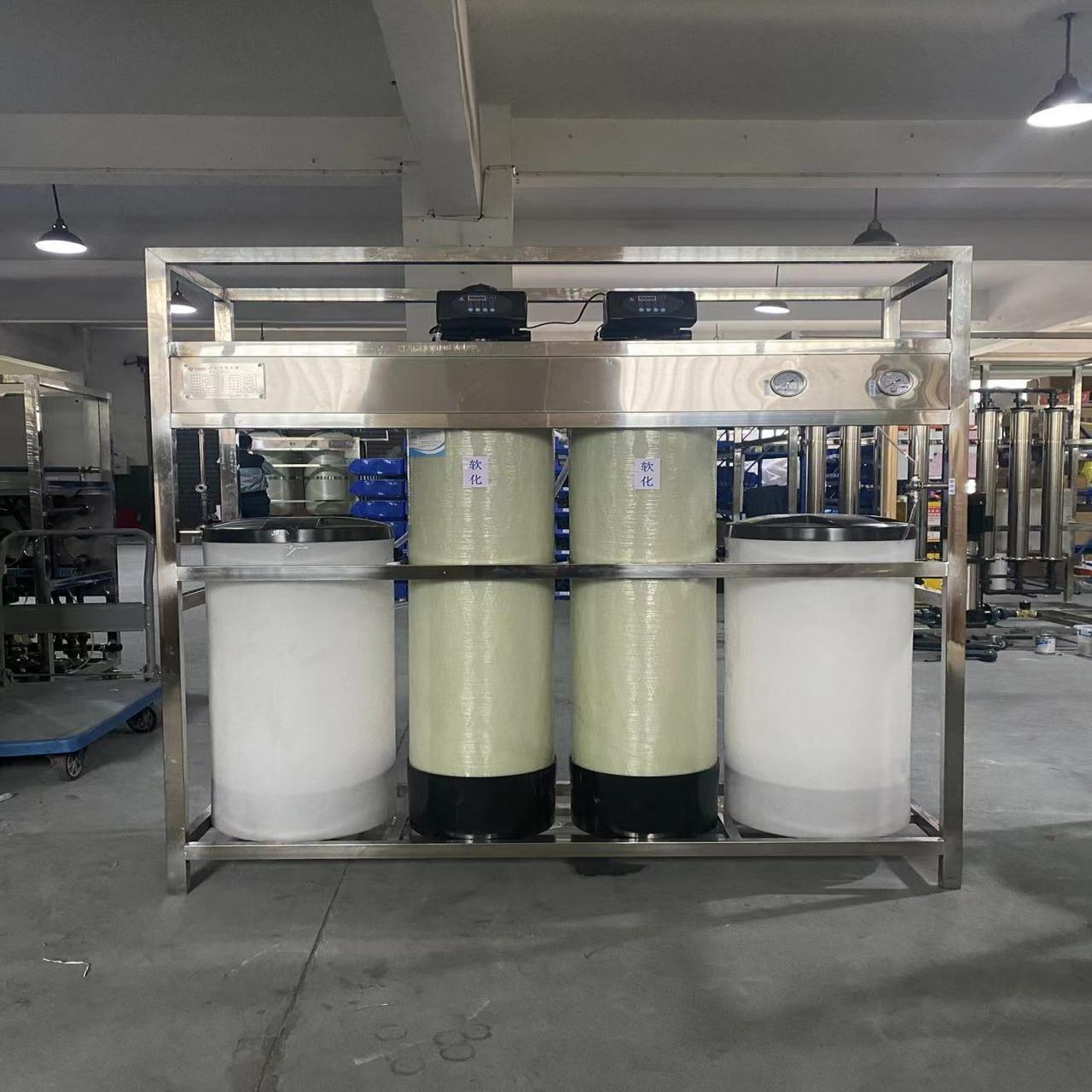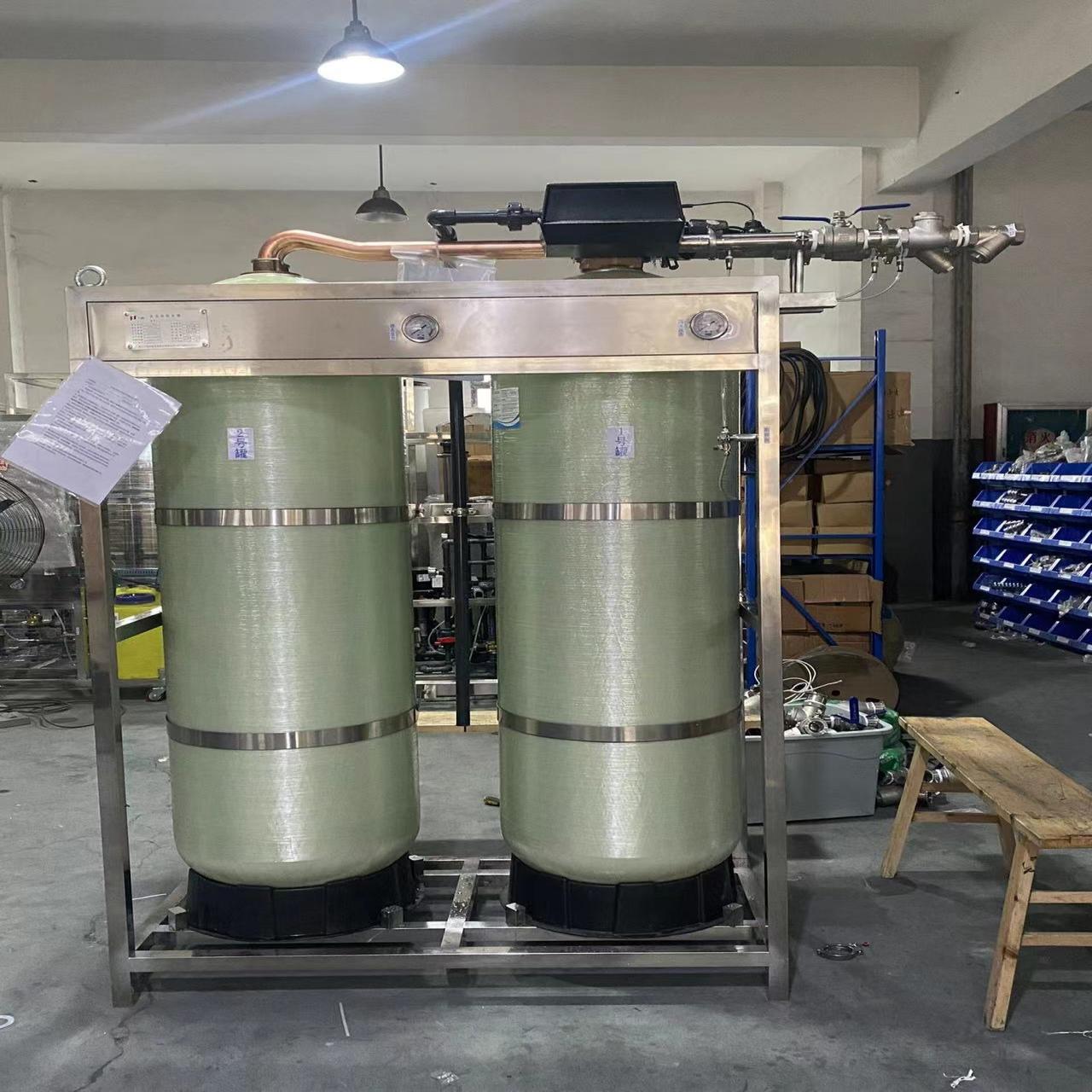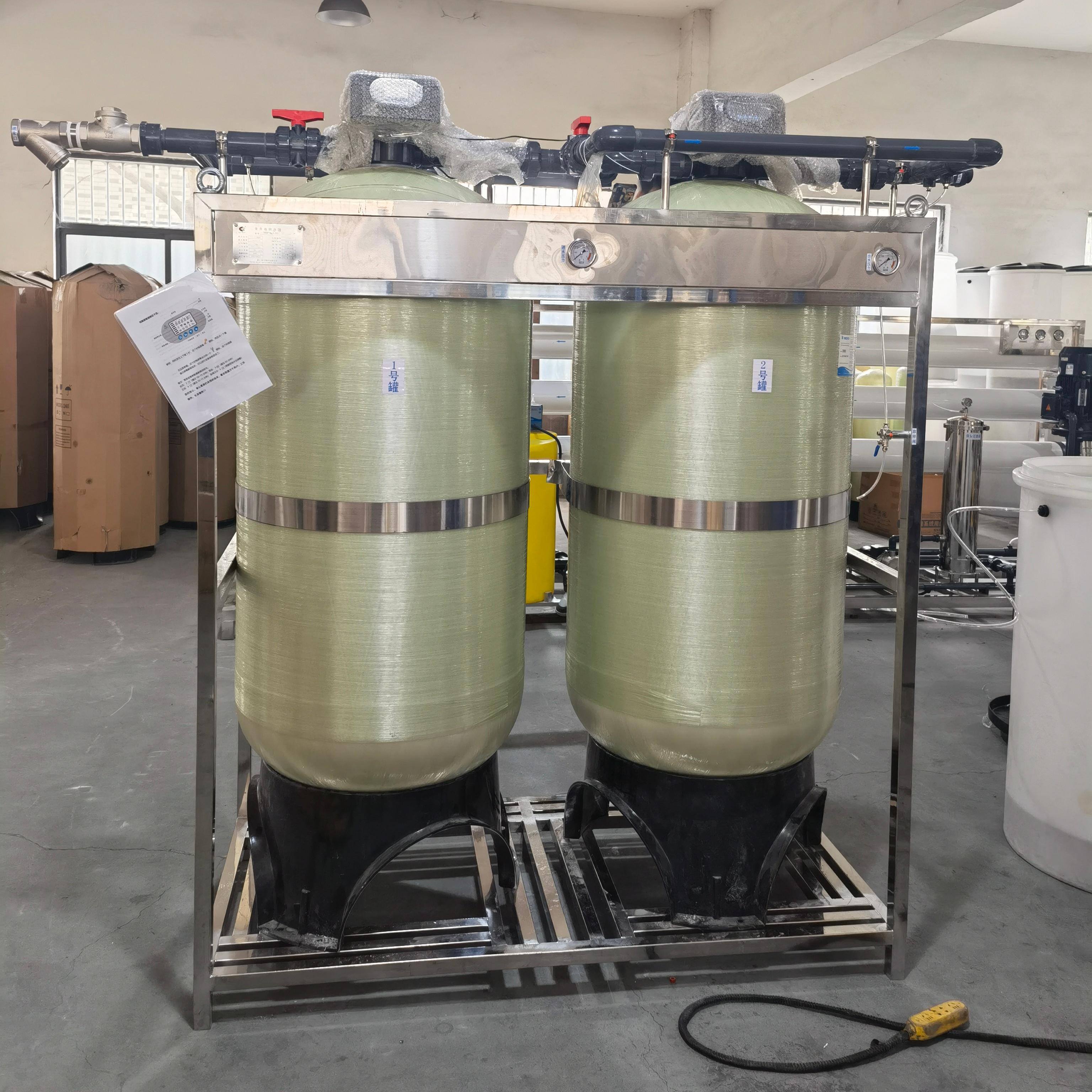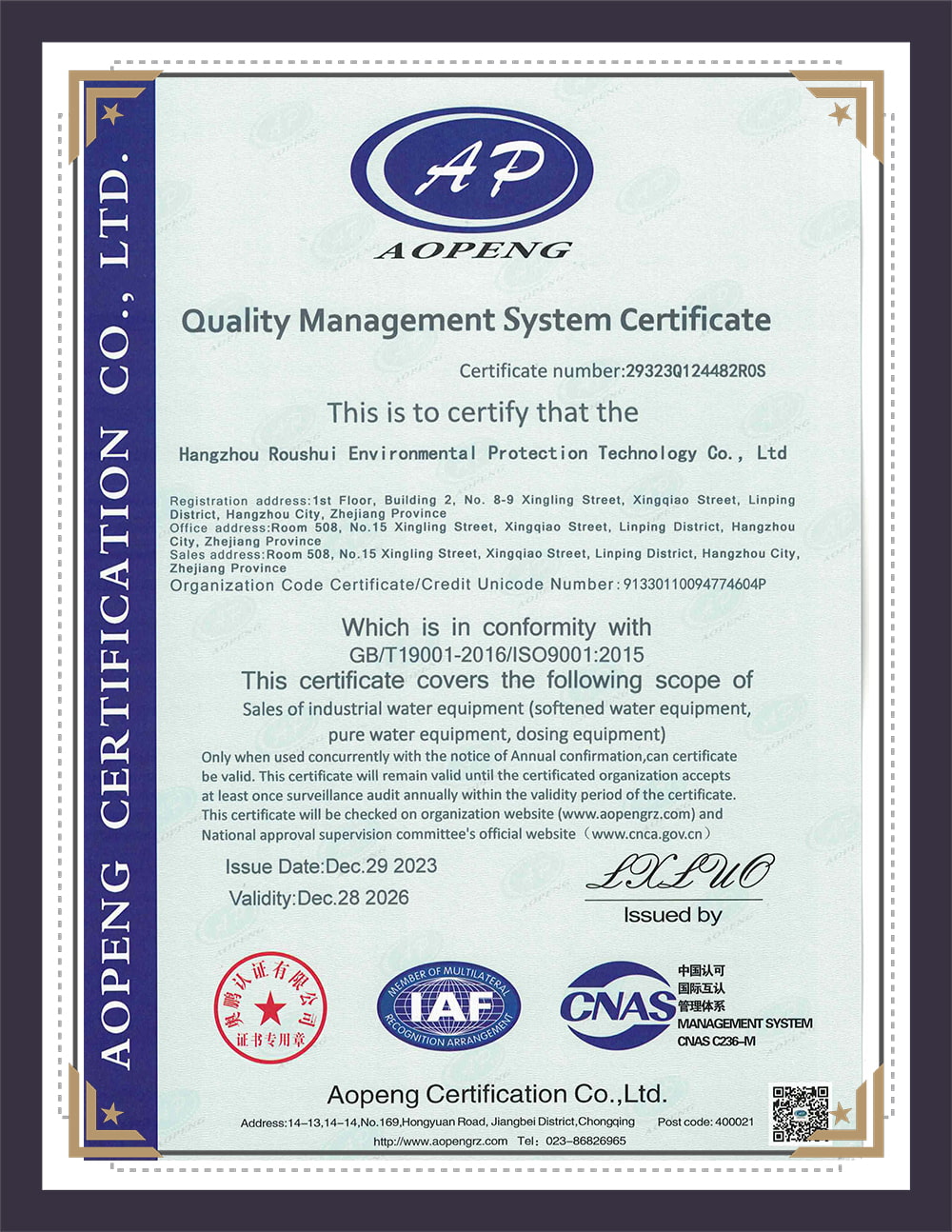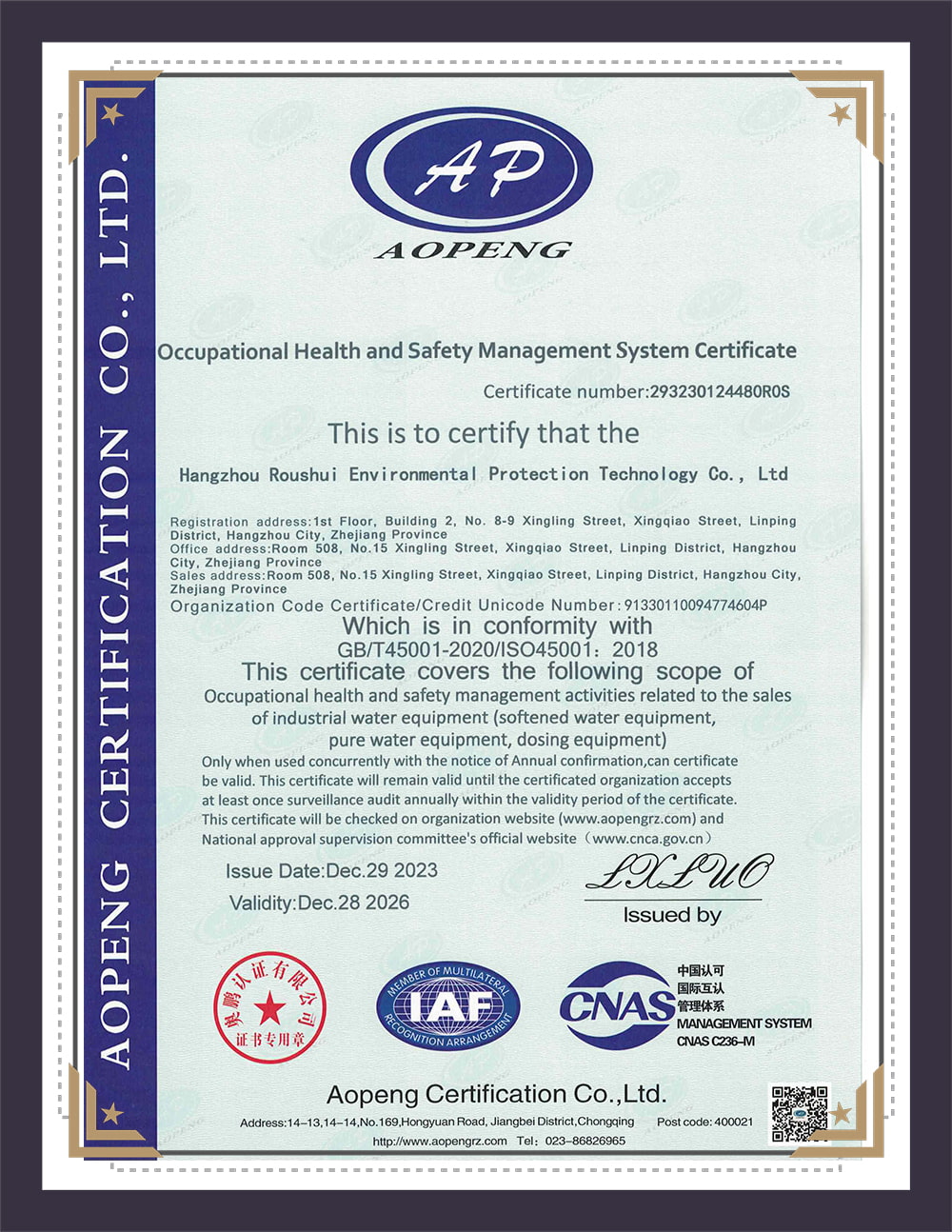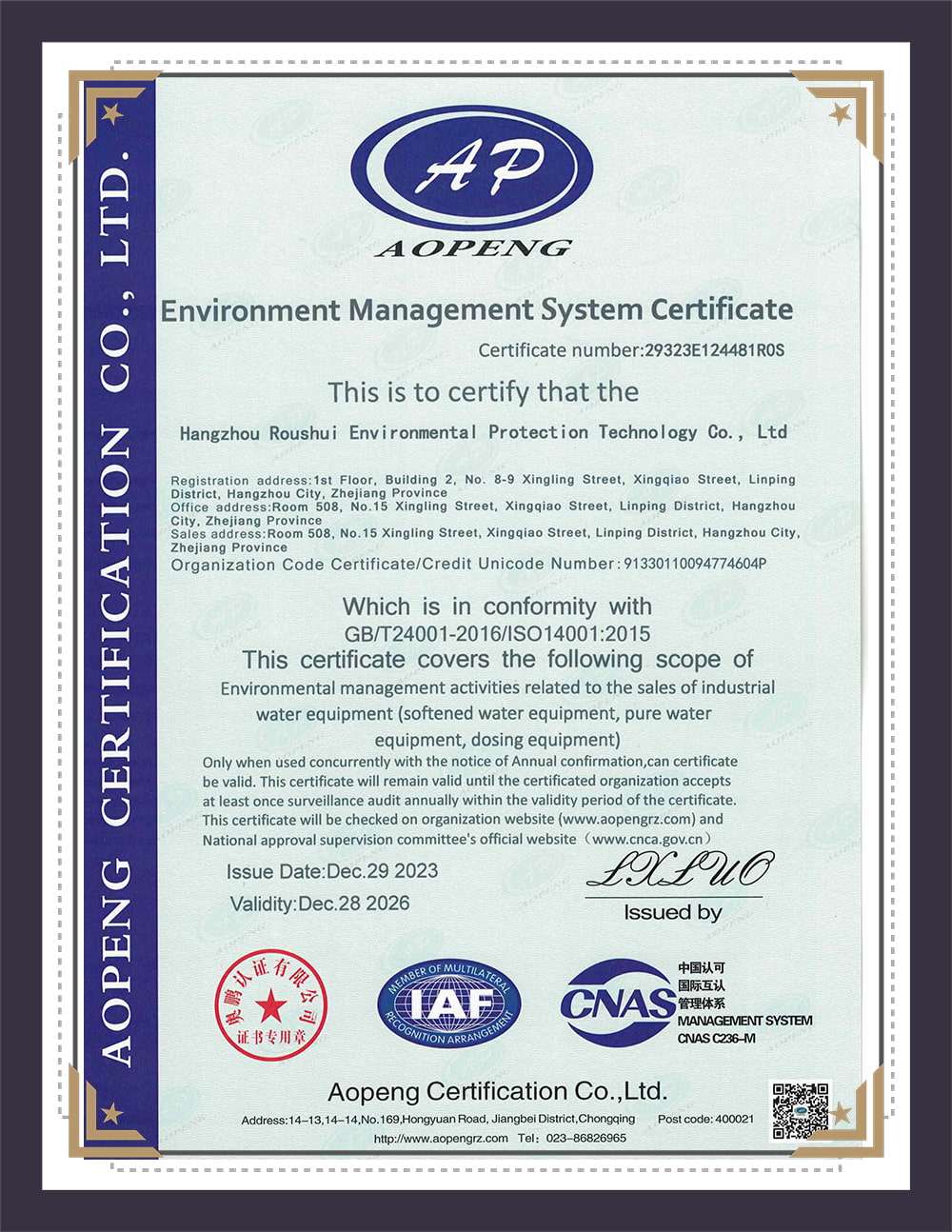The circulating water system softening, replenishing, sterilizing and dosing device is a special equipment for industrial circulating water treatment. It adjusts and maintains the stability of water quality by softening water quality, replenishing water and adding bactericidal agents. The equipment can effectively prevent the formation of scale, inhibit the growth of microorganisms, and ensure the efficient operation of the circulating water system and the compliance of water quality with the specified requirements. The device is usually installed in circulating water systems that require regular water quality adjustment, such as chemical, electric power, metallurgy and other industries.
The equipment uses water softening technology to remove hardness ions, prevent scale deposition and protect equipment and pipelines; it has an automatic water replenishment function to maintain a stable water level and ensure the normal operation of the system; it inhibits the growth of microorganisms by adding bactericides to ensure water quality safety. The high-precision dosing system ensures accurate dosing of agents, avoids waste and improves the treatment effect. The intelligent control system can monitor water quality changes in real time, automatically adjust the amount of agents and water replenishment, and ensure stable water quality. The equipment uses corrosion-resistant materials to adapt to harsh environments and ensure long-term stable operation. By optimizing water quality, it improves heat exchange efficiency, saves energy and reduces consumption, and reduces operating costs. At the same time, the equipment is simple in design, easy to operate and maintain, ensuring continuous and efficient operation.
The equipment is widely used in circulating cooling water systems in chemical, electric power, metallurgical and other industries. Through water softening, water replenishment and sterilization, it effectively prevents scale and microbial contamination and ensures efficient operation of the equipment. At the same time, it is suitable for large buildings and air-conditioning systems to prevent scale deposition, corrosion and microbial growth, and ensure system stability. In the field of environmental water treatment, it can optimize water quality and ensure compliance with emission standards. In addition, by improving water quality and heat exchange efficiency, it reduces energy consumption and operating costs. For industries such as electronics, electroplating, and papermaking, the equipment ensures strict water quality control to prevent pollution.

 English
English Español
Español عربى
عربى